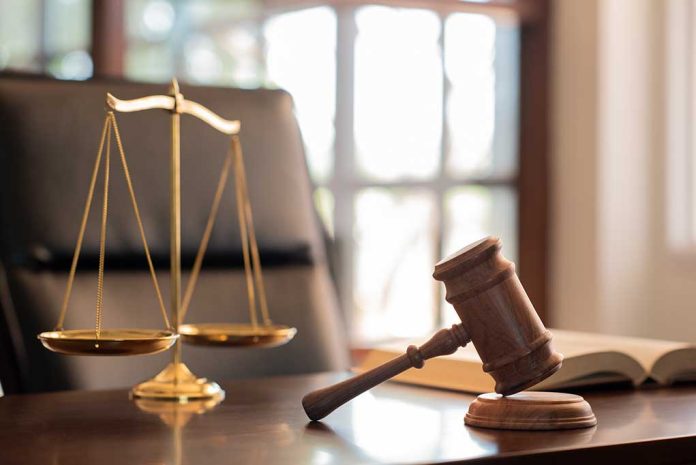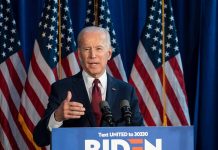
A highly anticipated federal appeals court ruling will determine if a TikTok ban infringes on First Amendment rights.
At a Glance
- TikTok contests U.S. law mandating ByteDance to sell the app or face a ban
- The law is driven by concerns over potential Chinese government exploitation of U.S. user data
- TikTok argues the measure infringes on free speech rights
- A pivotal court ruling is expected by December 6
- The case could potentially reach the Supreme Court
Federal Appeals Court to Rule on TikTok Ban and First Amendment Rights
On December 6, a federal appeals court will deliver a key decision on whether a new U.S. law mandating ByteDance, TikTok’s parent company, to sell the platform infringes upon First Amendment rights. The law’s intent, which has faced vehement opposition from TikTok and its users, is to prevent potential Chinese surveillance. TikTok representatives and eight key creators will present their case to a three-judge panel in Washington, D.C., arguing that this mandate imposes a severe restriction on free speech.
The U.S. government asserts that the app, massively popular among Americans, poses national security risks, a claim driven by fears of Chinese government exploitation. The Department of Justice will argue that concerns over data misuse and potential propaganda justify the law. However, “TikTok and ByteDance have always denied links to the Chinese authorities and have described the law as an ‘extraordinary intrusion on free speech rights.'” This conflict sits at the heart of the judicial deliberation.
🚨🇺🇸TIKTOK BAN FACES COURT CHALLENGE OVER FIRST AMENDMENT
A federal appeals court will hear arguments on whether banning TikTok violates the First Amendment.
The Biden administration signed a law requiring TikTok's parent company, ByteDance, to divest the app or face a ban by… pic.twitter.com/FIlwUaegHJ
— Mario Nawfal (@MarioNawfal) September 16, 2024
Critics Question National Security Justifications
Many, including free speech advocates, express concern that such justifications set a dangerous precedent. Xiangnong Wang from Columbia University’s Knight First Amendment Institute cautioned, “We shouldn’t be surprised if repressive governments the world over cite this precedent to justify new restrictions on their own citizens’ right to access information, ideas, and media from abroad.”
The debates are intense, with some predicting that banning TikTok would accelerate the “decoupling” between the U.S. and China.
Others worry about more immediate impacts on TikTok creators, who depend on the platform for their livelihoods. Indeed, the upcoming ruling could have far-reaching implications beyond just the app itself.
Bipartisan efforts to ban TikTok nationwide will be scrutinized Monday by a federal appeals court tasked with weighing whether axing the social media giant’s U.S. presence runs afoul of the First Amendment. https://t.co/uNtytalUnT
— KLBK News (@KLBKNews) September 15, 2024
Possible Implications for Freedom and Governance
The Electronic Frontier Foundation and similar organizations have filed amicus briefs, highlighting serious concerns over the breadth of the restriction on First Amendment rights. They argue that such national security concerns cited do not justify a sweeping ban. “For the first time in history, Congress has enacted a law that subjects a single, named speech platform to a permanent, nationwide ban,” TikTok emphasized in its lawsuit.
The looming court decision is expected to set the stage for future legal battles. Experts suggest that the case might eventually reach the Supreme Court, raising significant questions regarding the balance between national security and individual liberties. TikTok has firmly positioned itself against the law, denouncing its potential impact on freedom of speech and expression.
“Although neither side is completely correct, the State has the better argument as to the level of scrutiny that should be applied. However, even applying intermediate scrutiny, the State fails to show how SB 419 is constitutionally permissible.”
TikTok and a host of advocates view the law as overly restrictive, potentially setting a dangerous precedent for First Amendment rights. As the judicial system grapples with these crucial issues, the stakes remain high for millions of users and the broader implications for American free speech traditions.
Sources
1. TikTok says US ban would have ‘staggering’ impact on free speech
2. A national TikTok ban and the First Amendment
3. TikTok sues U.S. government, saying potential ban violates First Amendment









